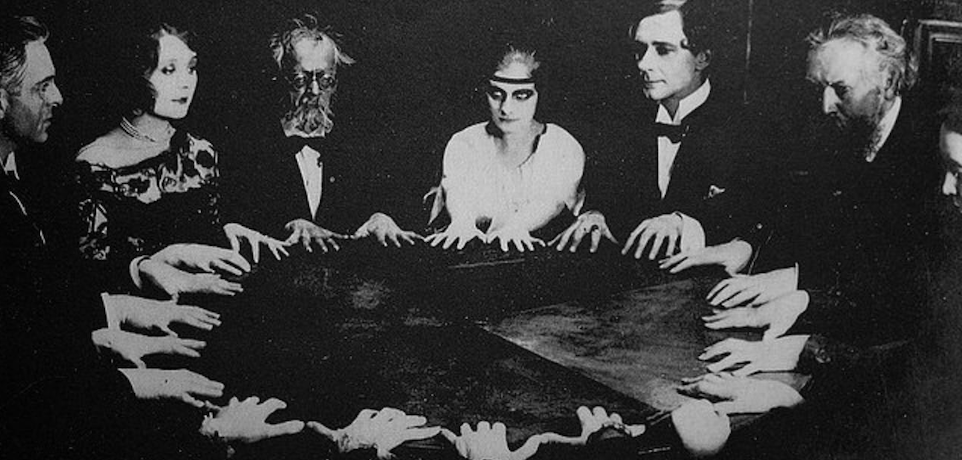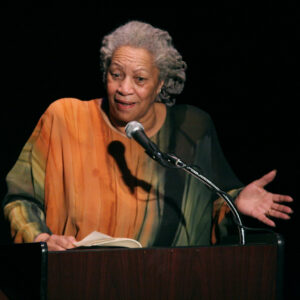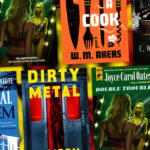Lit Hub Weekly: July 8 - 12, 2019
THE BEST OF THE LITERARY INTERNET


- 2019 is half over, but there are so many highly anticipated books still to come! | Lit Hub
- In the patriarchy no one can hear you scream: Rebecca Solnit on Jeffrey Epstein and the silencing machine. | Lit Hub
- “When we try to wrest clear meaning out of the abyss of brutality, we are refusing to imagine the real.” Madeline ffitch on the problem of neoliberal realism in contemporary fiction. | Lit Hub
- Helen Phillips’ eerie novel of maternal fear, Lisa Taddeo’s indelible portraits of sexual desire, Rudyard Kipling’s Americophilia, and more of the Reviews You Need to Read This Week. | Book Marks
- “I think the moral is to stay connected to the writing world, and above all, never give up.” Adrian McKinty on persistence, morality, and the late-night phone call that changed the course of his career. | CrimeReads
- Lauren Groff on Virginia Woolf’s sophomore novel Night and Day, “a book that gazes backward in time with skepticism and a virago’s impulse to shred into tatters all that it sees.” | The Paris Review
- From Plutarch’s Moralia to Arthur C. Clarke’s Prelude to Space to Nalo Hopkinson and Ursula K. Le Guin: two millennia of lunar literature. | Nature
- Scholars and theorists with challenging ideas sometimes rely on interviews, in journals and literary magazines, to clarify their ideas. Does that make the “critical interview” a literary form in its own right? | Inside Higher Education
- In the golden age of television, is there still such a thing as an “unfilmable” book? | The Guardian
- Read a profile of Harold Robbins, the “dirty old man of American letters”,whose scandalous, taboo-breaking novels have sold more than 750 million copies. | The Hollywood Reporter
- Inside the giant, artistic tribute to Maya Angelou on the grounds of the LA high school that bears her name. | The New York Times
- “Remembering those things, I would ask myself, Why am I so angry?” Stop what you’re doing and read this new novella by Mary Gaitskill. | The New Yorker
- What do Greek comedies, Elizabethan tragicomedies, and contemporary lifestyle books have in common? Quite a few are what some are calling “fail lit”, or the literature of failure (and trying to get back up). | BBC
- “She stares at the woman, and the woman stares at her”: A profile of Helen Phillips, whose latest novel, about the primal horrors of motherhood, was shaped by personal tragedy and success. | Vulture
- “The system is designed to encourage writers, and especially marginalized writers, to ignore their boundaries.” T Kira Madden, Roxane Gay, Leslie Jamison, and more on the aches and pains of nonfiction. | LARB
- “At the very same time that we’re losing biological diversity, we’re also losing linguistic and cultural diversity—languages are dying at an alarming rate.” On the intersection of climate and language, and how ignoring one might mean losing both. | JSTOR Daily
- “I can’t be nostalgic for 1966, because basically what you’re saying is Wasn’t Baltimore great when it was white?” A walking tour of Baltimore with Laura Lippman. | Vulture
- You know you don’t own your e-books . . . right? | The Chicago Tribune
- Meet the man who is writing 365 children’s books in 365 days as a gift to his daughter. Yes, he also has a day job. | The New York Times
- At the risk of being too meta . . . are we at peak newsletter? (And is that actually kind of a good thing?) | Vanity Fair
Also on Lit Hub:
Kimi Eisele on finding light in the darkness of a financial dystopia • Whitney Terrell: Is the American ballpark more public space or private playground? • Kerri Arsenault on food insecurity in small-town Maine • Irene Goldman-Price on Edith Wharton’s little-known poetry of love and regret • Falling for a statue of Hermes in Athens • Chuck Wendig on enraging Tolkienites, pickling himself in Star Wars, and gin • In memory of Michael Seidenberg, owner of Brazenhead Books • Alejandra Carles-Tolra documents Jane Austen cosplay in the English countryside • The liberation and consternation of writing a whole book with paper and pen • Lara Williams on hunger, women’s bodies, and Margaret Atwood’s first novel • Anthony McCann on the Constitutional confusion of the so-called American Patriot Movement • On the uncanny global adaptability of American fast food • Marcy Dermansky on how General Hospital inspired her novel • A poem by Charles Simic from his new collection • Miciah Bay Gault on finding small comfort in the panic of Shirley Jackson • Daido Moriyama, legendary street photographer, on how to take a snapshot • Peter Edelman on America’s war on the poor • Saskia Vogel on Three Women and the reportage of desire • How America came heartbreakingly close to universal healthcare (but opted for profit instead) • Courtney Maum on finding friendship with her online Spanish teacher • A Christian college fires an incoming professor due to the contents of his novel • Marian Ryan in Berlin, reading Han Kang • The 50 best one-star Amazon reviews of To Kill a Mockingbird
Best of Book Marks:
The New York Public Library’s Melissa Gasparotto on The Princess Bride, Tara Westover’s Educated, and supporting the learning society • Maggie Brown & Others author Peter Orner recommends five indelible short story collections, from Isaac Babel’s Collected Stories to James Alan McPherson’s Hue and Cry • Veteran of the New York literary world Ann Kjellberg on fighting with Roger Straus, being Susan Sontag’s personal assistant, and an innovative new book review platform • Boston Globe books columnist Nina MacLaughlin on superb small presses and the burden of the book pile • New titles from Chuck Wendig, Svetlana Alexievich, Karl Marlantes, and Lisa Taddeo feature among the Best Reviewed Books of the Week
New on CrimeReads:
John Galligan recommends 8 works of literature that are crime-ier than you’d think • Hilary Davidson on PTSD in crime fiction, from Lord Peter Wimsey to Rambo • Denise Mina talks true crime, road trips, and Brexit • Patrick J. Sauer re-reads Hannibal at 20, and traces Hannibal Lecter’s path from monstrous cannibal to pop culture icon• Craft advice from stuntwoman, choreographer and armorer S.L. Huang • “Well-to-do women, experts say, are simply more likely to suffer in silence.” Cate Holahan on domestic violence among the wealthy • Carl Vondereau presents 9 works featuring morally compromised allegiances • Laura S. Sullivan on the wicked women of 19th century literature • Aya de Leon challenges the perceived inferiority of urban fiction and looks to a new, more egalitarian future for genre fiction and literature • Celebrating the life and literature of the one and only Donald E. Westlake



















